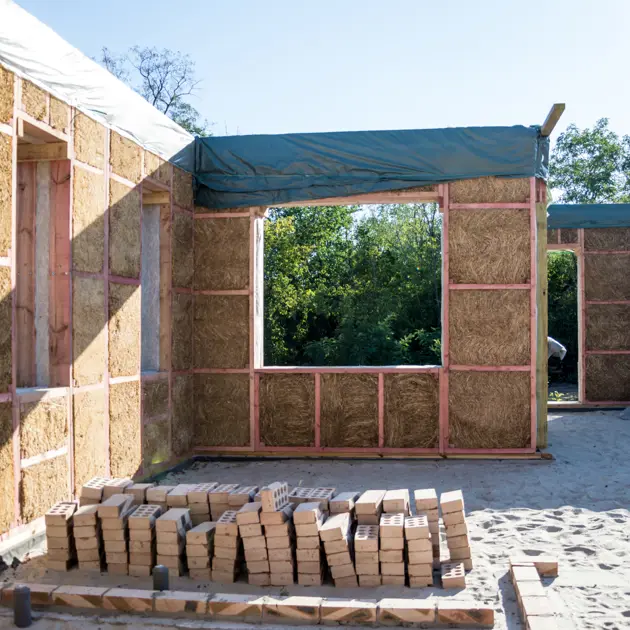Independent Evaluation of the Initiative ‘Delivering an advocacy agenda for a circular EU economy’
Laudes Foundation seeks an Evaluation Team for undertaking an external end-of-initiative evaluation of the initiative ‘Delivering an advocacy agenda for a circular EU economy’, implemented by the European Environmental Bureau and funded by Laudes Foundation Built Environment and Financial and Capital Markets Transformation programmes. Complete proposal must be submitted to Laudes Foundation by February 7, 2022.
Laudes Foundation is an independent foundation here to advance the transition to a just and regenerative economy. We do this by supporting brave action that will inspire and challenge industry to harness its power for good. Action that inspires industry, to work collaboratively to create solutions and tools. And action that challenges industry, holding it to account and incentivizing change. Founded in 2020, Laudes Foundation is part of the Brenninkmeijer family enterprise and builds on six generations of entrepreneurship and philanthropy. In particular, we advance the industry-changing work of C&A Foundation. Learning from these experiences, we to work persistently and collaboratively to influence capital and transform industry, starting with the built environment and fashion industries. Laudes Foundation. Redefining value for the good of all.
Laudes Foundation is commissioning a final external evaluation of the initiative titled Delivering an advocacy agenda for a circular EU economy to arrive at an objective assessment of how initiative met its intended goals till date, to document the missed opportunities and provide a focused set of recommendations and lessons that will enhance learning and inform the strategies and programmatic decisions of similar advocacy related initiatives.
The objective of the Delivering an advocacy agenda for a circular EU economy initiative was to develop a circular economy policy as a systemic transformation of the EU economy able to progress the Sustainable Development Goals (SDGs). To do this the initiative has built on existing policy frameworks and helped to initiate new advocacy instruments to apply them in priority on fashion and built environment sectors.
The request for proposals present a brief description of the initiative; scope and objectives; evaluation methodology; stakeholder involvement; roles and responsibilities; evaluation process; deliverables; audience and dissemination; consultant qualifications and projected level of effort.
The external evaluation is required to be completed and submitted to Laudes Foundation by April 29 2022.
- The Initiative
The initiative has focused on three essential levers of a circular economy which are able to contribute to a systemic change and can best be performed at European Union (EU) and European national level:
1- Setting an advocacy transformative pathway for a EU circular and inclusive economy
The ultimate objective of this line of work is to develop a circular economy policy as a systemic transformation of the EU economy able to progress the SDGs. To get there, the EEB project during the first two years aimed to promote a combination of different circular economy related approaches that will mutually reinforce to achieve a systemic transformational impact. While many policies and approaches could be considered, the initiative will focus on four essential levers of a circular economy: product policy initiative, fiscal reform approaches, narratives setting and trade/corporate responsibility & due diligence which are expected to be able to contribute to a systemic change and can best be performed at EU and national level. The initiative will build on existing policy frameworks and help emerge new advocacy instruments to apply them in priority on fashion and built environment sectors.
2- A transformative agenda for the fashion sector taking advantage of the announced comprehensive EU strategy for Textiles
The fashion sector offers a unique opportunity to develop and apply the approaches mentioned in the section above. The EU strategy will help the initiative to design policy options and activate policy instruments for a sector still poorly addressed by sustainable policy. The emotional dimension of fashion, its linkages to identity and life styles, will provide the relevant hooks to create new narratives towards sustainability, fairness, the possibility to take control of how and what is consumed, as well as how clothes are to be produced.
3- A transformative agenda for the built environment taking advantage of the announced comprehensive EU strategy on Sustainable built Environment
The construction sector represents nearly 50% of EU material consumption by weight and 35% of the CO2 emissions (without taking into account embodied emissions). The EU strategy will enable to identify and activate the main levers for a sustainable built environment system (‘housing’), beyond the existing policy framework, still mostly limited to energy performances of new buildings and recycling. The prominent climate change angle for this sector will be pushed further towards total decarbonization, including embodied emissions, to drive sustainable (public) procurement, heavy industry investments and local job potentials. The total decarbonisation entry point will also pave the way for a more comprehensive built environment strategy, taking into account health and social dimensions.
Laudes Foundation has provided approximately EUR 1.262 million from 2020 onwards for implementation of the initiative which was initially awarded to European Environmental Bureau as key implementor. Additional grant related details will be provided to the evaluation team by the EEB team and Laudes Foundation.
For Laudes Foundation, the initiative sits within the Built Environment, Materials and Financial and Capital Markets Transformation programmes.
The evaluation should assess the design, progress and impact of the initiative. The evaluation will also generate actionable and strategic lessons learned and recommendations for similar initiatives.
The Evaluation Objectives are to:
- Review the initiative’s design, implementation and partnership with EEB in achieving outcomes.
- Assess the relevance and value of the initiative towards advocacy effort for circular economy in EU.
- Examine EEB’s ability to engage with some stakeholders and integrate their perspective.
- Identify missed opportunities and deepen knowledge and understanding of successes, failures, assumptions and potential for leveraging and building upon the initiative for all partners including both implementation partners and funding partners.
The evaluation will cover the grant made in 2020 till date. The objectives should be considered within the context of the non-linearity of systems level change, review the approach and the journey taken so far, to ensure that all of the lessons accumulated over the past two years can be integrated and built upon. This to ensure that the effectiveness of the initiative can be maximised going into their next phase of work.
Evaluation Questions: The evaluation questions will be designed in order to allow a sound assessment of the relevant rubrics and may include, but are not limited to the following:
Initiative Quality:
- How well is the initiative aligned to Laudes Foundation’s vision and mission and EEB’s strengths, capacities and priorities?
- How well has the initiative been executed? Did the actions that the initiative undertake result in fulfilling its mission of progressing a circular economy in the EU?
- To what extent was the initiative engaged with the ‘most appropriate and relevant’ stakeholders who could facilitate impact?
- How effective was the initiative in engaging and motivating relevant partners?
- What monitoring approaches were put in place to inform adaptive management? How was data and knowledge collected and used by EEB to evaluate momentum in the industry?
- How was communication conducted both internally and externally? What communicative products or approaches were useful to EEB and where were there gaps?
Outcomes / Results:
- How well has the initiative been able to contribute to influencing mindsets, beliefs and assumptions to create alignment with the vision for a circular EU?
- How well has the initiative been able to influence decision makers, including policymakers, to understand the root cause of the issues, the shared vision, and to inform positive changes in policies and practices?
- How has the initiative been able to support its partners in understanding the benefits of a circular fashion and built industry, and actions they can take towards accelerating the transition? What, if any, gaps in support can be observed and why?
- How has the initiative been able to connect and enable collaboration among a wide range of different organisations and stakeholders? What barriers did the initiative encounter, if any, why?
- To what extent has the initiative been able to promote diversity, equity, and inclusion transformation?
- What unintended results (positive or negative) did processes employed by EEB’s initiative produce?
Long Term Value:
- To what extent are there signs that the initiative is on track to promote a widespread and thorough implementation of circular economy practices, policies, and/or regulations?
- Where has the initiative been able to build the foundations for its financial sustainability?
- How likely is it that this initiative would be effective in other contexts?
Footnotes
- Please refer to Annex A for additional questions to be addressed by the evaluation.


